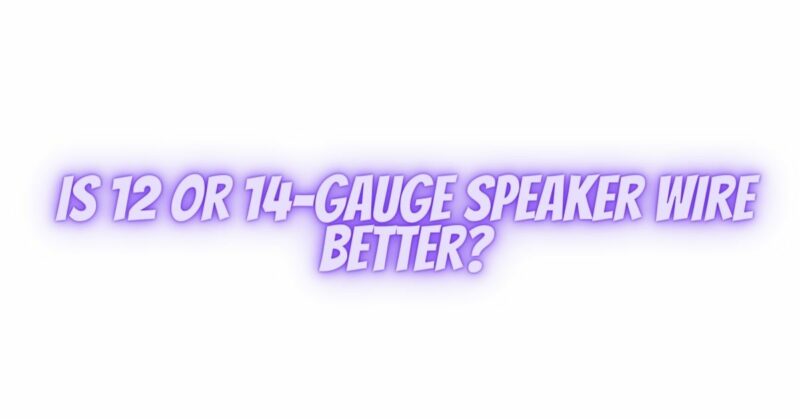When setting up your audio system, selecting the appropriate speaker wire gauge is a critical decision that can impact the sound quality of your setup. Two common options are 12-gauge and 14-gauge speaker wire, and choosing between them depends on several factors. In this article, we’ll compare 12-gauge and 14-gauge speaker wires to help you make an informed decision.
Speaker Wire Gauge Basics:
Before we dive into the comparison, let’s clarify what speaker wire gauge means:
- Gauge: The gauge of a speaker wire refers to its thickness or diameter. Smaller gauge numbers indicate thicker wires.
- Resistance: Thicker wires have lower electrical resistance, which means they can carry more power over longer distances with less signal loss.
- Power Handling: Thicker wires can handle higher power levels without overheating or degrading the signal.
12-Gauge Speaker Wire:
12-gauge speaker wire is a thicker wire compared to 14-gauge wire and offers several advantages:
- Power Handling: 12-gauge wire can handle more power than 14-gauge wire. This is particularly important when connecting high-power speakers or when running longer cable lengths.
- Low Signal Loss: The thicker wire diameter reduces electrical resistance, resulting in lower signal loss over extended cable runs.
- Versatility: 12-gauge wire is suitable for a wide range of speaker setups and can accommodate both bookshelf speakers and larger floor-standing models.
14-Gauge Speaker Wire:
14-gauge speaker wire is a thinner wire compared to 12-gauge and is commonly used for connecting speakers in home audio systems. Here are some key characteristics:
- Power Handling: While not as robust as 12-gauge wire, 14-gauge wire can still handle reasonable power levels, making it suitable for many home audio setups.
- Low Signal Loss: 14-gauge wire provides good signal transmission over moderate cable lengths. It is an excellent choice for most average-sized rooms and typical listening distances.
- Cost-Effective: 14-gauge wire is often more budget-friendly than 12-gauge wire, making it a cost-effective choice for basic audio systems.
Choosing Between 12-Gauge and 14-Gauge:
The choice between 12-gauge and 14-gauge speaker wire depends on the following factors:
- Cable Length: For longer cable runs or larger rooms where signal loss can become a concern, 12-gauge wire is a better choice.
- Speaker Power Rating: If your speakers have a high power rating, it’s advisable to use 12-gauge wire to ensure they receive an adequate and clean signal.
- Budget: If you’re on a tight budget or have a simple audio setup with short cable runs, 14-gauge wire can be a cost-effective solution.
- Room Size: Smaller rooms with speakers placed relatively close to the amplifier may not benefit significantly from thicker wire, making 14-gauge wire sufficient.
- Personal Preference: Some audiophiles prefer thicker wire for all their speaker connections to ensure the best possible performance, regardless of the room size or speaker type.
In conclusion, both 12-gauge and 14-gauge speaker wires have their merits, and the choice between them depends on your specific audio setup and requirements. Consider factors like cable length, speaker power rating, and your budget when making your decision to ensure the best possible sound quality for your system.


